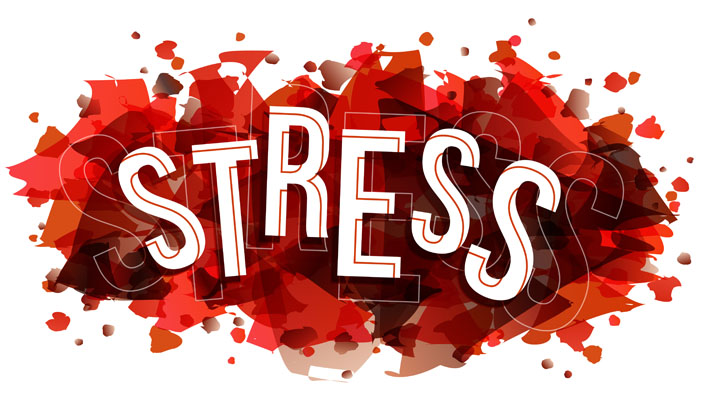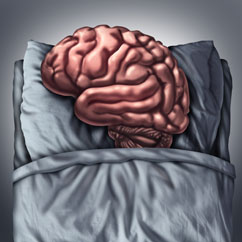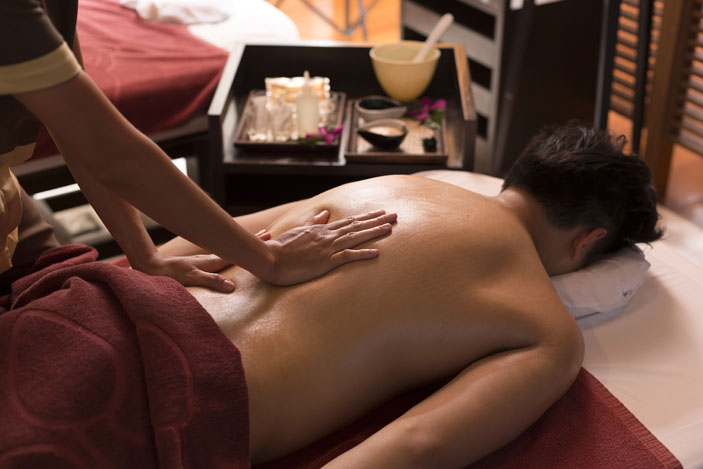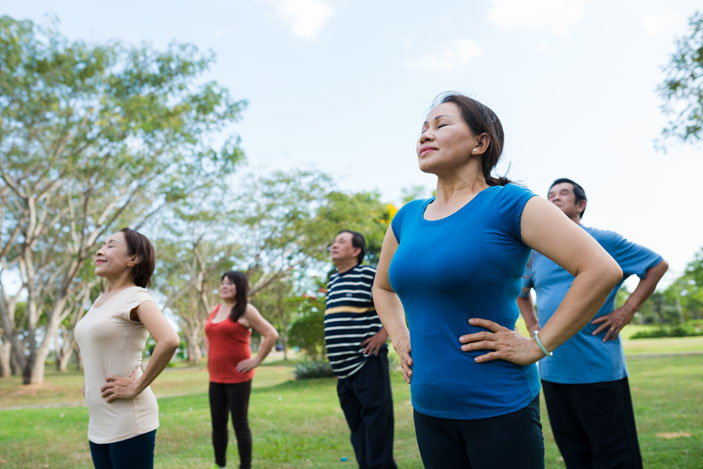STRESS is the emotional and physical strain caused by our response to pressure in our world.
Experts believe that stress plays a role in many psychological and physiological ailments such as depression, anxiety, high blood pressure, heart disease, weight gain, alcoholism, reduced concentration, fatigue, irritability, narrowed focus and ulcers. Stress activates our sympathetic nervous system, causing blood pressure, heart rate and breathing to increase. Muscles receive more blood, our attention narrows and feelings of anger and fear increase.
This is the fight or flight response and it is everywhere in our workplaces causing a significant amount of ill health, lost productivity and even death.
Of course, stress is not always negative and for most of us, it is present every day. In fact, stress can be positive and helpful in endeavours like public speaking and meeting deadlines. It can motivate us, providing an extra surge of energy to explore new horizons and face challenges.
 Stress evolved as a response to the physical threats humans once faced, like predators. The adrenal glands produce adrenaline and cortisol, hormones that prepare our muscles for action by increasing heart rate, blood pressure and breathing.
Stress evolved as a response to the physical threats humans once faced, like predators. The adrenal glands produce adrenaline and cortisol, hormones that prepare our muscles for action by increasing heart rate, blood pressure and breathing.
Once the acute threat passes, however, this heightened state of arousal subsides. But if the threat persists, the stress hormones remain elevated in our bodies.
Likewise, anxiety is a natural reaction to major life transitions or traumas. The problem is however that more and more people are living in a chronic state of anxiety. This happens when we feel that the demands being made of us are greater than the resources we have to deal with them. In other words, we do not feel in control.
This lack of control eventually catches up with you. Exhaustion, lack of sleep and poor eating habits all lead to a loss of physical and mental well-being. Stress also alters how the brain functions and reduces our ability to focus on the big picture. Creativity, innovation and productivity vanish because people feel flooded by fear. This triggers the powerful primary negative emotions of anger, anxiety and depression so that our attention becomes riveted on our problems and absorbs all our energy.
So, what can you do about busting stress?
1. Get Physical
Exercise reduces your blood pressure, feelings of depression, stress, tiredness and anxiety. It also promotes your psychological well-being, enhances your energy and helps you sleep better. Many of us have experienced the sense of well-being from exercising and from the release of endorphins. When you exercise, you are building up your reserves of hormones that help you to deal better with stress in the future. The fact that you are also doing something good for yourself gives you a sense of mastery and control and gives you a mental break from the things that are causing you stress.
In fact, older people who exercise build up their brain tissue and minimise age-related brain tissue losses.
All this is important because your brain is less than 3% of your body’s weight yet uses 30% of your body’s oxygen.
So join a gym, take up cycling, go for a swim or just walk as much as possible.
2. Get 40 Winks
Sleep is important to regenerate and refresh our learning ability, our memory and our emotions. It helps to repair our nervous and immune systems and enhance our physical capacity.
To help you sleep better, establish a regular time to go to bed, don’t exercise just before bed, keep your bedroom for sleep and not for work, ensure that your bedroom is cool, well ventilated, quiet and dark, avoid caffeine and other stimulants, and don’t eat after 9pm.
Remember sleep impacts your success at work so see your doctor if you are having trouble sleeping.
3. Detox Your Mind
We should strive to detox our minds to help combat stress and anxious feelings. Tips for doing this include limiting your Netflix viewing, leaving your mobile at home when you are out with friends, only checking your email three times a day. Turning off all appliances to listen to the silence. Unplugging your computer and giving your eyes a rest will also broaden your horizons and open your mind.
4. Get A Massage
One of the best stress busters is to have regular massages. It is amazing that we regularly service our cars but not our bodies. Massage releases endorphins which are the body’s natural painkillers and other beneficial hormones like oxytocin — feel-good hormones that help you relax.
5. Get A Pet
Research shows that just patting a pet decreases your blood pressure and slows down your respiration (even if cleaning up after it or dealing with damaged furniture sends it in the other direction). This will also help in terms of social interaction and help you to feel less isolated.
6. Try Something New
Walk home using a different route. Read different genres of books. Look at strange art. Eat unfamiliar food. You could also join a choir, learn to dance or enrol in a course.
7. Have A Healthy Diet
Healthy eating is essential for combating stress and enhancing your well-being and performance at work. How many people drink at least two litres of water each day, eat fresh foods, especially vegetables, eliminate takeaway meals or have reduced their coffee, alcohol and sugar intake?
Having your iron levels checked is also important as iron is essential for oxygen transport to the brain and low levels can cause panic attacks, fatigue, breathlessness, mental confusion, forgetfulness, irritability and poor learning. Magnesium and calcium are also vital for restoring and maintaining nerve health and for the production and function of serotonin, while the B group of vitamins are the most important for stressed executives. Eat whole grains especially oats and nuts and take vitamin C and potassium which are good stress busters.
8. Learn To Breathe
Stress floods our systems with hormones like epinephrine and norepinephrine, which create shallow thoracic breathing that’s more suitable for the flight-or-fight response. Lengthening your breathing lets you oxygenate your blood more effectively and release more carbon dioxide and dead air from your lungs’ lower lobes.
Simply stopping during the day and taking some deep breaths creates space for expansive thoughts to be cultivated.
You Might Also Like To Read:
9. Try Monotasking
Energy can be quickly depleted by trying to multitask and neuroscientists now conclude that while we may be able to do one or two simple tasks simultaneously, we are not wired to multitask.
In fact, multitasking results in deteriorated performance because the executive part of the brain, the neocortex, becomes exhausted from having to pull forward vast amounts of new information each time you commence a different task.
Doing one task at a time is much better for performance and stress reduction with some experts believing that interruptions can increase the time to finish the primary task by 25%.
10. Rest Your Brain
The brain’s power is surprisingly limited when it comes  to complex cognitive tasks. Dr David Rock says we aren’t built to process complex new information all day long and our capacity to do very difficult thinking is limited; perhaps to just a few minutes a day. Doing simple mundane tasks is one way we can give our brains a rest. Rock also asserts that the brain is sensitive to threat and that workplace stress easily triggers the brain’s flight or fight response, limiting our ability to process complex information.
to complex cognitive tasks. Dr David Rock says we aren’t built to process complex new information all day long and our capacity to do very difficult thinking is limited; perhaps to just a few minutes a day. Doing simple mundane tasks is one way we can give our brains a rest. Rock also asserts that the brain is sensitive to threat and that workplace stress easily triggers the brain’s flight or fight response, limiting our ability to process complex information.
11. Make Your Workplace Beautiful
 Leonardo da Vinci understood that the sensory impressions from our daily environments act as food for our brains. Ideas for improving your workplace include hanging your favourite paintings, bringing fresh flowers and replacing fluorescent lights with full spectrum bulbs. Not surprisingly, results of college students in the USA improved by 12% when natural light was introduced into classrooms.
Leonardo da Vinci understood that the sensory impressions from our daily environments act as food for our brains. Ideas for improving your workplace include hanging your favourite paintings, bringing fresh flowers and replacing fluorescent lights with full spectrum bulbs. Not surprisingly, results of college students in the USA improved by 12% when natural light was introduced into classrooms.
12. Be Positive
The building blocks of positive psychology that we should endeavour to adopt are optimism, gratitude, hope, forgiveness, close relationships, meaning and purpose, physical activity, sound sleep, a good diet, engaging leisure, mindfulness and spiritual practice. This is not about morality but research that shows that certain ways of living lead to better satisfaction. Positive psychology experts also recommend setting goals to serve others, undertaking gratitude visits to thank people and developing compassion by thinking of someone who is suffering. Another technique that has positive impacts on people’s lives is the ‘three blessings exercise’ where you spend time each night recording three things that went well during that day.
Lastly, we should spend time each day working or playing in an area that draws on our signature strengths. This means doing something that you are good at as this plays an important role in building your confidence and bringing you happiness. People who practise such interventions cope better with difficult situations and are more resilient in the face of stress and anxiety.

13. Find Calm
To significantly enhance your workplace performance, try meditation, an experiential technique which involves focusing the mind in a way that helps you relax, contemplate, derive insight, gain awareness and enhance your mental, physical and emotional well-being. Professor Rob Moodie from the Nossal Institute for Global Health and 2005 Victorian Father Of The Year says that while there are hundreds of types of meditation, they all fall into two main categories; one is concentrative meditation where the centre of activity is on a single image, mantra, sound or your own breathing, and the other is mindfulness meditation in which you are aware of all the physical sensations and feelings that arise and the many thoughts that go through your mind.
Research on the effects of meditation has shown that prolonged practise can reduce fear and anxiety, lessen depression and anger, improve sleep patterns and memory, and enhance your concentration and mental clarity, which results in more energy and output. The physiological benefits are also well documented and include decreased oxygen consumption, reduced metabolic rate and blood pressure, a reduction in heart rate and cholesterol, reduction in epileptic seizure frequency, an increase in cerebral blood flow, improved response times and reflexes, and an increase in melatonin which enhances immune function and reduces jet lag.
Meditation is also a great way to steady yourself when you are in situations that normally make you anxious or panic, like before a difficult discussion or before an important presentation.
While these may seem like many factors to consider, many of them can easily be adjusted by reflecting on your own life, its value to society and yourself, and how slight adjustments can lead to a better lifestyle.
The Healthy Way is a regular health series developed by STORM.SG. If you have specific queries, please do email us at health@storm.sg and we will ask the panel of experts for their advice. Do note that only selected queries will be addressed.





























